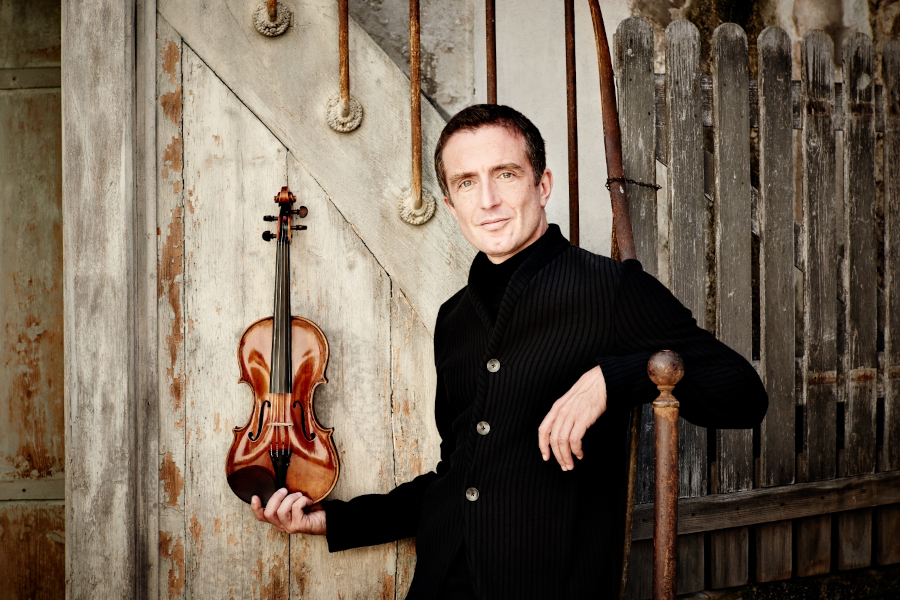The concert of the NFM Leopoldinum Orchestra graced by Albanian violinist Tedi Papavrami will be an opportunity to listen to an unusual combination of works. The first part will feature two works by Johann Sebastian Bach, representing the Baroque era, while the second part will be filled with music from the Romantic era. One of the Romantic works was inspired by a work by a classic of world literature.
It is not known exactly when Bach wrote the Violin Concerto in E major BWV 1042. Researchers’ speculations point to the periods when the composer worked in Köthen or Leipzig. This work, full of great energy and vitality, consists of three movements. Two fast movements flank the expressive Adagio. Bach must have liked this concerto because he relied on it to create the Harpsichord Concerto in D major BWV 1054. The Concerto for Two Violins in D minor BWV 1043 is considered by connoisseurs to be one of the greatest masterpieces of the Baroque period and one of the best works of the Leipzig cantor. This composition also consists of two fast movements surrounding the slow middle one, and it was reworked by Bach into the Concerto for two harpsichords in C minor BWV 1062. Christian Danowicz will perform as the other soloist in this concerto.
The next work in the programme is the Poème, one of the most famous works of the French composer Ernest Chausson. Initially, the composition was to be titled Song of Triumphant Love, which suggests that it was inspired by a short story by the Russian writer Ivan Turgenev. The writer lived then near Paris and was a good friend of the composer. In his work, he described the relations between members of the French artistic community, which inspired Chausson. In the end, the artist decided to change the title and thus prevent his work from evoking any extra-musical associations. The opening of the piece is calm and melancholic, but as the narrative develops, the mood unexpectedly changes several times. In this ecstatic work, our attention is drawn to the refined harmonics. The last in the programme will be the String Sextet No. 1 in B flat major op. 18 by Johannes Brahms. It is a light and cheerful piece consisting of four movements: a dynamic Allegro, a solemn, serious Andante in the form of variations, a savage Scherzo and a graceful finale in the form of a Rondo.

